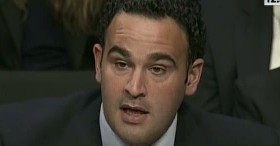The Marijuana Policy Project extended an invitation Friday to the new Maine affiliate of Project SAM (Smart Approaches to Marijuana) to join forces to promote sensible marijuana policy reform in Maine.
 The national SAM organization announced the formation of the state chapter following Tuesday’s election, in which Portland voters overwhelmingly approved a ballot measure (67-33) making it the first city on the East Coast to make marijuana legal for adults.
The national SAM organization announced the formation of the state chapter following Tuesday’s election, in which Portland voters overwhelmingly approved a ballot measure (67-33) making it the first city on the East Coast to make marijuana legal for adults.
In a letter to SAM state coordinator Scott Gagnon, Marijuana Policy Project Maine political director David Boyer highlighted the organizations’ shared goals: “In particular, MPP shares SAM’s desire for an honest, evidence-based public dialogue about marijuana, and we agree it is time for an alternative approach to Maine’s current marijuana prohibition policies.”
SAM’s November 6 press release stated that the group was being formed in advance of efforts to pass a state law that regulates marijuana like alcohol, and that one of its goals is, “To inform public policy with the science of today’s marijuana.” In response, Boyer wrote:
Given the nature of the proposed public policy, we trust these discussions will entail an examination of the relative harms of marijuana compared to alcohol.
In particular, we believe it is critical that they take into account the wealth of scientific evidence demonstrating marijuana is less harmful than alcohol to the consumer and to society. If SAM intends to oppose proposals to make marijuana legal for adults and regulate it like alcohol, we will expect you to explain why you believe adults should be allowed to use alcohol responsibly, but should not be allowed to engage in the responsible use of a substance that is less toxic, less addictive, and (unlike alcohol) does not contribute to violent behavior.
SAM’s press release also stated that one of its goals is, “To have an adult conversation about reducing the unintended consequences of current marijuana policies, such as lifelong stigma due to arrest.” In response, Boyer wrote:
We share your concerns about the harm caused by current marijuana laws, which entail arresting, prosecuting, and penalizing adults for simply possessing and consuming marijuana, and we look forward to discussing ways in which we can end such practices.
We feel strongly that any such conversation must not focus exclusively on the fears of those who wish to maintain prohibition, but also address the potential benefits of replacing it with a system in which marijuana is regulated similarly to alcohol.
MPP’s letter also inquired about SAM’s statement on its website that it “rejects dichotomies – such as ‘incarceration versus legalization’ — that offer only simplistic solutions to the highly complex problems stemming from marijuana use and the policies surrounding it.” SAM spokesperson Kevin Sabet has said the group wishes to promote a “third way.”
It appears your organization simply wishes to maintain the status quo of prohibition, in which marijuana remains entirely illegal and even responsible adult use warrants legal penalties. I look forward to hearing why you consider such a system to be a ‘third way’ and not just the ‘same way.’
The Marijuana Policy Project also rejects the ‘incarceration versus legalization’ dichotomy — we disapprove of both marijuana prohibition and marijuana anarchy. Instead, we are pursuing an alternative policy, or ‘third way,’ that reflects the realities of marijuana and minimizes the harm surrounding it. We recognize that marijuana is relatively safe for responsible adult use, it is widely available and commonly used, and it’s not going anywhere anytime soon. As such, we believe its production and distribution should be regulated and controlled, not left to the underground market where we have no idea who is growing it or who is selling it, when, where, and to whom.
Article republished from Marijuana Policy Project









